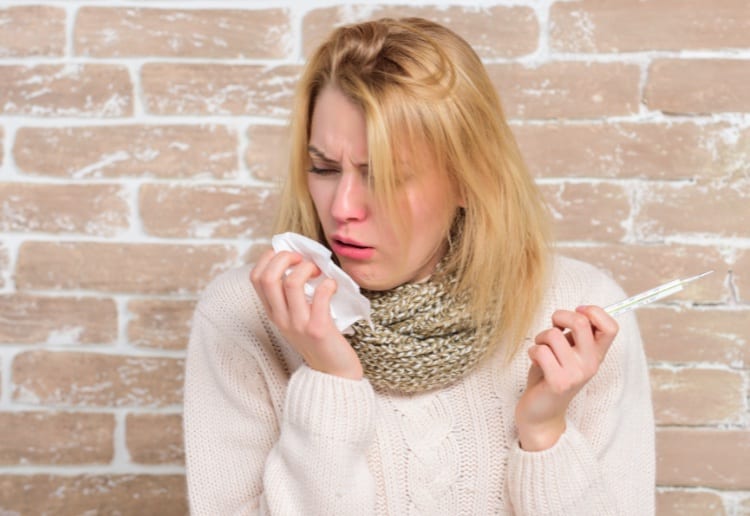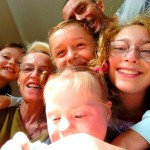You would have to literally be living under a rock not to know about Coronavirus but although we’ve seen the climbing numbers and heard stories of countries shutting shop and bunkering down, many of us don’t actually know what do do if you think you may have Coronavirus.
Firstly let’s look at the symptoms.
Symptoms
According to the Australian Department Of Health, symptoms can range from mild illness to pneumonia. Some people will recover easily, and others may get very sick very quickly.
People infected with Coronavirus may experience:
- fever
- flu-like symptoms such as coughing, sore throat and fatigue
- shortness of breath
These symptoms are similar to other flu variants, so it’s not guaranteed that these symptoms mean you definitely have COVID-19, but you should still get tested.
I have Coronavirus Symptoms. What Do I Do?
If you are experiencing Coronavirus symptoms, there are a few steps that you should follow:
If you have serious symptoms such as difficulty breathing, call 000 for urgent medical help.
COVID-19 Hotline
Otherwise, call the Coronavirus Health Information Line for advice.
The line operates 24 hours a day, seven days a week. The number is 1800 020 080
Seek Medical Attention
Your first point of call is your local GP. However, you should not just show up at the doctor’s office as you may be putting vulnerable patients at risk. Instead, you should call ahead of time to inform the doctor’s office about your symptoms and to make an appointment.
You will be asked to take precautions when you attend your appointment for treatment. Ensure you follow the instructions you are given.
If you have a mask, wear it to protect others. Stay at least 1.5 metres away from other people. Cover your coughs or sneezes with your elbow.
When you see your doctor, make sure you give them a full medical history including:
- your symptoms
- any travel history
- any recent contact with someone who has COVID-19
Get A Coronavirus Test
There is a global shortage of test kits that pathologists use to diagnose COVID-19. As a result, only targeted testing of Coronavirus will be taking place at present.
Your doctor will make the decision if you should be tested and will make arrangements for the test.
You will only be tested if your doctor decides you meet the following criteria:
- You have returned from overseas in the past 14 days and you develop respiratory illness with or without fever
- You have been in close contact with a confirmed COVID-19 case in the past 14 days and you develop respiratory illness with or without fever
- You have severe community-acquired pneumonia and there is no clear cause
- You are a healthcare worker who works directly with patients and you have a respiratory illness and a fever.
The test generally involves having a swab that is placed into both nostrils and down the throat. This is then sent off to the laboratory to be tested.
What happens after the test?
It may take a few days for the test results to come back.
If you have serious symptoms you will be kept in hospital and isolated from other patients to prevent the virus spreading.
If your doctor says you are well enough to go home while you wait for your test results, you should:
- self-quarantine at home and do not attend work or school
- wash your hands often with soap and water
- cough and sneeze into your elbow
- avoid cooking for or caring for other members of your household
- wear the mask your doctor gives you if you cannot avoid close contact with other people
What happens if my test is negative?
You no longer need to remain in isolation. You may return to normal activities on the advice of Public Health authorities. You should continue to carefully monitor your health for up to 14 days after your last contact with the confirmed case.
Report any new or returning symptoms to Public Health in this period. You may be required to be tested again.
What happens if my test is positive?
You must remain in your home or accommodation until Public Health officers advise that it is safe to return to normal activities. This will normally be 1 day after your symptoms end.
If your condition deteriorates, seek medical attention:
- Notify the Public Health officers managing your care by calling the number provided to you
- Follow the direction of the Public Health officers who may advise you to go to a doctor’s surgery or a hospital
- Call ahead to a doctor or hospital and inform them that you are a confirmed case of COVID-19
- Put on the mask provided to you if you need to leave the house
- When you arrive at the doctor’s surgery or hospital, tell them that you are a confirmed case of COVID-19.
What About My Family And Friends?
People who you have had contact with you, including family members and people you live with will need to isolate themselves for 14 days since their last contact with you. If they start displaying symptoms, they will need to seek medical attention.
What life changes have you made amidst the Coronavirus crisis? Tell us in the comments below.




















9:48 am
11:42 pm
12:30 pm
7:32 am
12:22 am
6:48 am
2:44 pm
1:17 pm
9:59 pm
3:10 pm
5:21 pm
2:47 pm
9:34 am
6:30 am
-

-
-
Ellen replied
- 17 Mar 2020 , 8:42 am

-

-
-
mom93821 replied
- 18 Mar 2020 , 6:45 am
Reply4:04 am
11:43 pm
10:17 pm
9:31 pm
9:08 pm
8:57 pm
- 1
- 2
- »
Post a commentTo post a review/comment please join us or login so we can allocate your points.